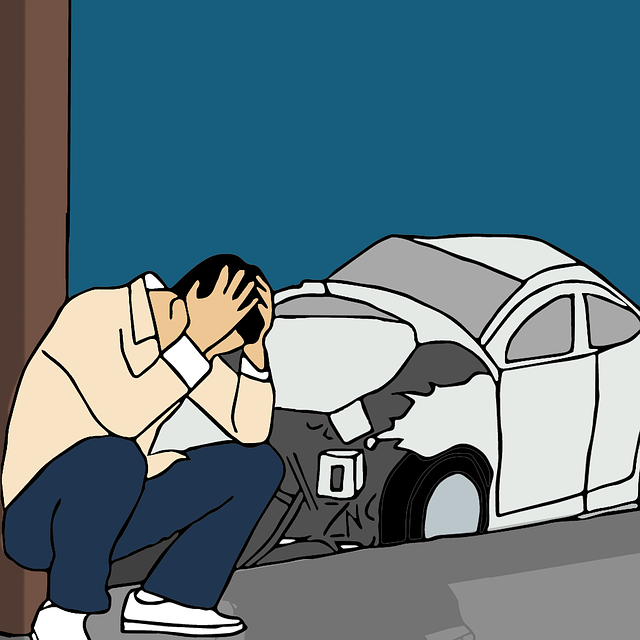Comprehensive car insurance provides drivers with extensive protection beyond standard liability and collision policies, covering theft, vandalism, natural disasters, and animal damage. It reimburses eligible claims without a deductible and offers peace of mind by safeguarding vehicles and personal belongings against diverse risks. Review policy details carefully to understand what's covered, as exclusions include extreme weather, acts of war/terrorism, and high-risk accidents. Comprehensive insurance is especially beneficial for drivers in varied environments or areas with high crime rates, offering a financial safety net regardless of circumstances.
Comprehensive car insurance offers peace of mind on the road, covering a wide range of unexpected events. But what exactly does it include? This article delves into the intricacies of comprehensive car coverage, breaking down its key components and benefits. We explore the types of damages and events it protects against, while also shedding light on potential exclusions.
By understanding what comprehensive insurance covers, you can make informed decisions when choosing the right policy for your needs, ensuring you’re prepared for any unexpected journey.
Understanding Comprehensive Car Insurance: A Basic Overview

Comprehensive car insurance, also known as full coverage, is a type of auto policy that goes beyond the standard liability and collision deductibles. It’s designed to provide drivers with extensive protection against a wide range of potential risks and damages while operating their vehicles. When you have comprehensive car insurance, you’re covered for more than just accidents; it includes various scenarios that can happen during everyday driving.
Understanding what comprehensive car insurance covers is essential as it offers peace of mind knowing your vehicle and its value are safeguarded. This type of coverage typically includes protection from theft, vandalism, natural disasters like floods or storms, and even damage caused by wildlife. Additionally, it often extends to personal belongings kept in the car, providing reimbursement for items stolen or damaged during an insured event. Unlike collision insurance, comprehensive does not require a deductible, meaning you’ll receive the full policy amount if your vehicle is eligible for coverage.
Key Components of Comprehensive Car Coverage

Comprehensive car coverage goes beyond the typical liability and collision policies, offering a wide range of protections for vehicle owners. When we talk about what does comprehensive car insurance cover, we’re looking at a suite of services designed to safeguard against various risks and unforeseen circumstances. This includes protection against theft, damage from natural disasters like floods or storms, and even vandalism.
Key components often found in comprehensive car coverage include thorough vehicle repair or replacement should the policyholder’s car be damaged beyond repair, medical payments for any injuries sustained by the policyholder or passengers, and personal belongings coverage, which compensates for items stolen or damaged from within the vehicle. These features ensure that not only is your car protected, but so are you and your loved ones, providing a comprehensive safety net for various eventualities on the road.
Types of Damages and Events Covered

Comprehensive car insurance, often referred to as ‘full coverage’, is designed to protect policyholders from a wide range of potential risks and damages. When we talk about what does comprehensive car insurance cover, it’s important to understand that this type of policy goes beyond the standard requirements and offers a broader spectrum of protection.
The types of damages and events covered under comprehensive car insurance can include, but are not limited to, collisions with other vehicles or objects, vandalism, theft, natural disasters like floods or earthquakes, and even damage caused by animals. This type of coverage is particularly valuable for drivers who frequently drive in diverse environments or live in areas prone to specific risks, such as high crime rates or severe weather conditions. By ensuring comprehensive car insurance, policyholders can have peace of mind knowing that their vehicles are protected against a wide array of unforeseen events.
Exclusions and Limitations in Comprehensive Policies

Comprehensive car insurance is designed to offer wide-ranging protection, but it’s important to understand what’s included and what isn’t. While these policies typically cover a broad spectrum of potential risks, there are still certain exclusions and limitations to be aware of. Some common exclusions may include liability for damage caused by extreme weather conditions, acts of war or terrorism, and certain types of vehicle accidents, such as racing or joyriding.
Additionally, comprehensive policies often have deductibles, which means you’ll need to pay a set amount out of pocket before the insurance kicks in. The coverage limits can also vary, so it’s crucial to review the policy details carefully. For instance, if your car is totaled, the compensation might not fully replace its original value due to depreciation, and certain add-ons or custom modifications may not be covered at all.
Comparison with Other Auto Insurance Types

Comprehensive car insurance stands out from other types, like liability or collision coverage, by offering protection against a wide range of incidents beyond accidents. While liability insurance is primarily concerned with damages caused to others, and collision covers repairs in case of a crash, comprehensive goes further. It typically includes coverage for theft, vandalism, natural disasters (like floods or storms), and even mechanical failures.
This type of insurance acts as a safety net, ensuring drivers are protected financially regardless of the circumstances. When considering what does comprehensive car insurance cover, it’s clear that its scope is significantly broader than basic options, making it an appealing choice for those seeking thorough protection for their vehicles.
How to Choose the Right Comprehensive Car Insurance Policy

When considering a comprehensive car insurance policy, it’s crucial to understand what exactly it covers. Unlike collision or liability coverage, comprehensive insurance protects against a wide range of non-collision events such as theft, vandalism, natural disasters (like floods or hail), and even animal-caused damage. It essentially provides peace of mind by ensuring your vehicle is repaired or replaced if damaged under these unforeseen circumstances.
Choosing the right policy involves evaluating your personal risk factors and prioritizing coverage needs. Consider factors like your vehicle’s value, your driving history, and local crime statistics. Some policies offer customizable options for additional protections such as rental car coverage during repairs or roadside assistance services. Comparing quotes from different insurers is key to finding a balance between adequate coverage and affordable premiums.
